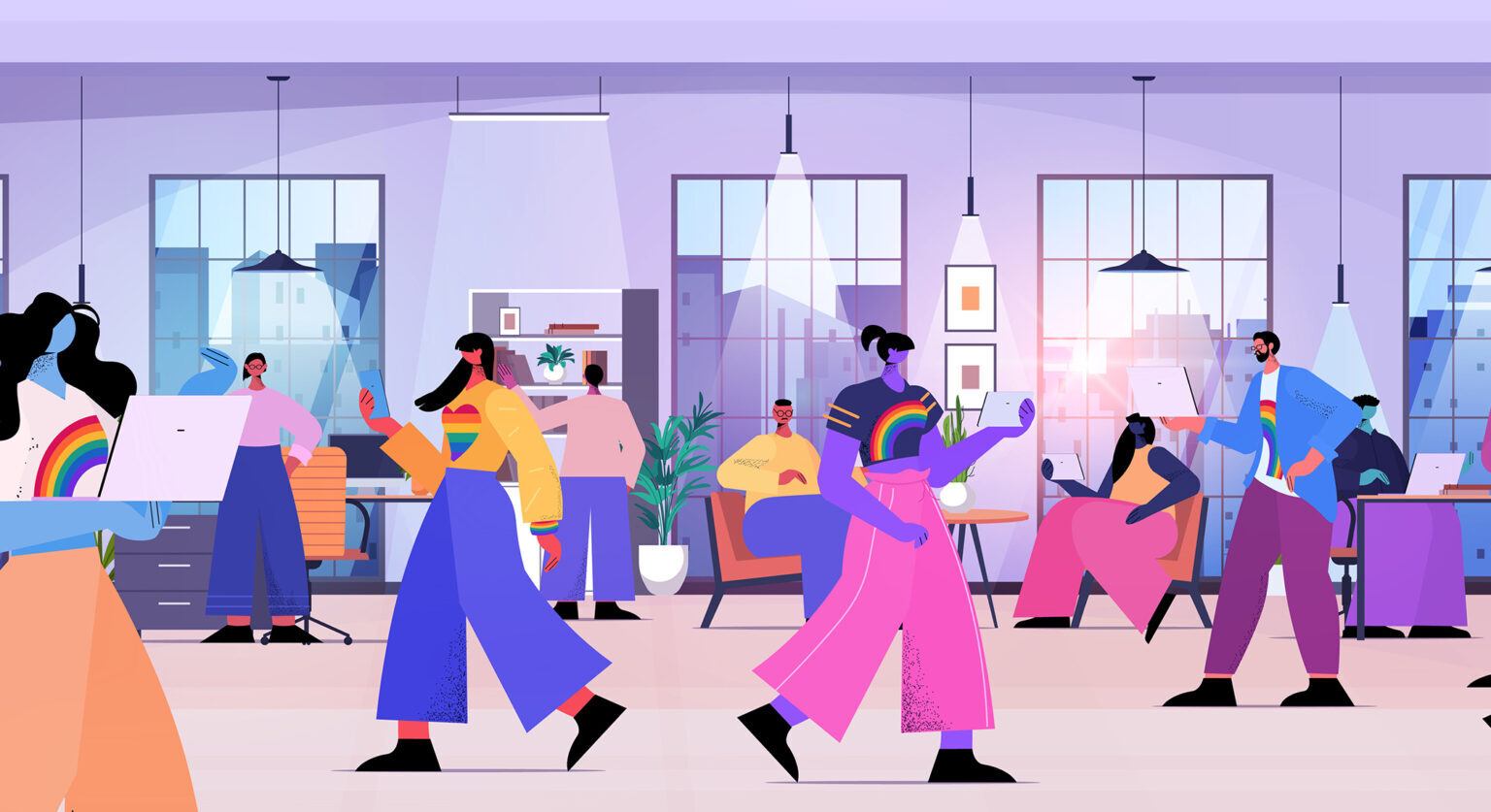The power of privilege and inclusion in the workplace
Over half of LGBTQI+ individuals still feel they have to hide aspects of who they are at work. Andrea Dermody explores the hidden cost of this workplace self-censorship and how true inclusion begins with awareness about privilege and exclusion

Imagine a world in which you had to censor every conversation you were going to have, in your head, before you opened your mouth. Imagine if you couldn’t talk about the great girl or guy you had met at the weekend, or share your excitement about a new relationship with your friends at work because then they would know that you were gay.
Imagine if you couldn’t celebrate milestone life events involving a partner because you couldn’t be open about who you are in your workplace.
This is the day-to-day experience of thousands of people globally who are LGBTQI+, at home, at work and in public. Now imagine how exhausting, disconnecting, and often scary that must feel.
In its pivotal report, the Human Rights Campaign Foundation studied the national picture of LGBTQI+ workers’ experiences of inclusion at work, versus their non-LGBTQI+ colleagues. The study reveals that despite a changing social and legal landscape for LGBTQI+ people, over half (53%) of LGBT+ workers still hide who they are at work.
The result is not just a personal cost, but also detrimental to an organisation’s culture, inclusivity, and employee engagement and retention.
What is privilege?
Privilege is a system of advantages granted to individuals who belong to a dominant or normative group, often without their awareness. It doesn’t mean their lives are always easy – just that their sexual orientation, race, gender or another identity feature isn’t a source of extra difficulty or discrimination.
According to a report from from London School of Economics (LSE), two types of privilege directly impact LGBTQI+ people in the workplace: heteronormativity and cisnormativity. These norms mean that we assume that heterosexuality and cisgender identities are the default unless we are told otherwise.
The result of this requirement to self-censor has led to people leaving their jobs because they are made to feel unwelcome for simply being who they are. Nearly 10 percent of LGBTQI+ people report leaving a job specifically because they were made to feel this way.
Unconscious bias in the workplace
When asked why an LGBTQI+ individual might not be open about their identity at work, 64% of respondents said, “because it is nobody’s business”.
However, statistical analysis reveals the highest correlation between this response and negative workplace experiences, such as harassment, anti-LGBTQI+ jokes, comments and other demeaning and microaggressive behaviour from colleagues.
Although being open is generally viewed positively at work, responses in the survey reveal double standards: less than half of the people would feel comfortable hearing an LGBTQI+ colleague discuss their social or dating life, or related subjects.
Over 70% agree that “it is unprofessional” to talk about your sexual orientation or gender identity in the workplace. Many non-LGBTQI+ workers do not realise that they also have a sexual orientation and gender identity, and they frequently casually reference these aspects of themselves without understanding the implications.
Making an inclusive workplace
Non-LGBTQI+ people can make a difference to their workplaces by recognising and acknowledging the ways in which they have privilege, and then using that privilege positively to help promote equitable outcomes for others.
Verywellmind suggests the following ways to pave the way to social change:
- Self-reflection: Self-reflection fosters critical thinking that can connect individual lived experiences to larger systemic realities.
- Acknowledge your privilege: By acknowledging your privilege, you limit the possibility of invalidating another person’s life experiences or silencing them altogether. It shows self-awareness, empathy, and compassion to those who are marginalised.
This study from LSE then applies those principles to actionable strategies for the workplace, through:
- Awareness: Awareness can be spread by starting the conversation around heterosexual and cisgendered privilege in the workplace and would be most effective if the message comes from upper management. This can occur informally or in a workshop setting, as long as the message is received and understood by all employees.
- Workplace policies: Past research shows that an organisation’s internal policies or norms can significantly influence the friendliness of a work environment. e.g. allowing same-sex partners to attend company social events.
- Culture change through language: A large component of workplace culture is the language used (Park, 2020). This includes using all individuals’ preferred pronouns and ensuring gendered language is not offensive. Encouraging all employees to state their pronouns can make it easier for LGBTQI+ individuals to feel comfortable sharing their own.
- Measurement: In addition to gathering data on LGBTQI+ status, tools should be developed to assess the experiences of LGBTQI+ individuals in the workplace. For example, a microaggression scale was developed by Resnick & Galupo (2019). By gathering more data on the unique experiences of LGBTQI+ individuals at work, we can paint a clearer picture of the injustices and challenges they face and work towards inclusion for all people in the workplace.
There have been numerous well-documented studies that now prove a demonstrable link between an organisation’s approach to inclusivity and boardroom success. Benefits can include higher job satisfaction among staff, lower staff turnover, increased productivity, improved morale, and enhanced creativity and innovation.
To make strides toward truly diverse and inclusive work cultures, a key first step is to create awareness of the role of unearned privileges. Such investment can pave the way towards dismantling oppressive systems and attitudes, ultimately benefiting all workers and enhancing organisational success.
Andrea Dermody is Founder of Dermody Inclusion and Diversity